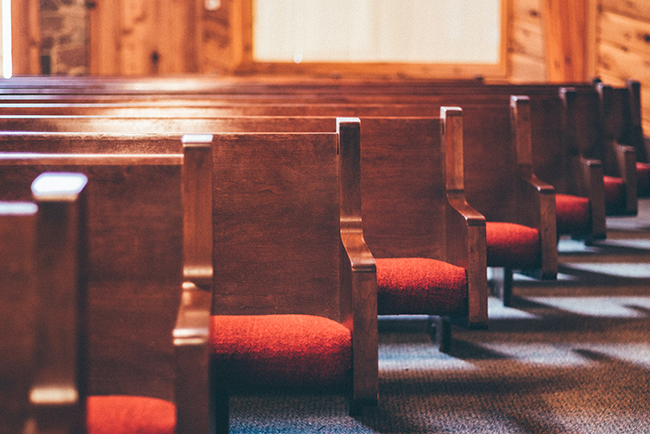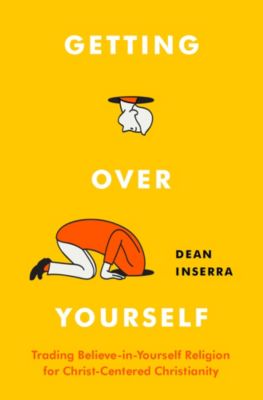
By Aaron Earls
From sea to shining sea and even across the Bible belt, the United States continues moving away from an overwhelmingly Christian population, creating a less religious demographic.
Religious identity
In 2007, almost eight in 10 U.S. adults (78%) identified as a Christian, according to a new Pew Research study. Since then, the share of Americans identifying with Christianity has steadily fallen, declining to 63% in 2021.
The percentage of Americans identifying as a Christian has fallen 15-points in 14 years—78% in 2007 to 63% today, according to @pewresearch. Click To TweetThe decline of Christians in the U.S. has been matched by a rise in the religiously unaffiliated. Their number has almost doubled since 2007—from 16% to 29%.
In 2007, when Pew began asking its current question about religious identity, Christians outpaced the unaffiliated by almost 5-to-1. “Christians now outnumber religious ‘nones’ by a ratio of a little more than 2-to-1,” according to the report.
Earlier steady declines among Catholics have leveled off, according to Pew. Overall, the percentage of Americans who identify as Catholic has dipped slightly from 24% in 2007 to 21% in 2021. The declines within Christianity have primarily come from Protestantism, dropping from 52% to 40%.
In 2007, Christians outpaced the religiously unaffiliated by almost 5-to-1. They now outnumber "nones" by a ratio of a little more than 2-to-1, according to @pewresearch. Click To TweetAmong Protestants, evangelicals outnumber non-evangelicals, but both groups have declined in recent years. Six in 10 Protestants (60%) consider themselves to be a “born-again or evangelical Christian.” Black Protestants are more likely to see themselves as evangelical (66%) compared to white Protestants (58%).
Evangelical Protestants have dropped as a share of the population from 30% in 2007 to 24% today. Non-evangelical Protestants fell from 22% to 16%.
The gains among nones come primarily from those who are “nothing in particular.” This less convictional group has grown from 12% in 2007 to 20% today. Atheists (2% to 4%) and agnostics (2% to 5%) have had modest gains.
Religious practice
Christianity continues to be the most common religious identification in America, but the decline in identification is also contributing to fewer saying they pray daily or see religion as “very important” in their lives.
Those who say they pray every day dropped from 58% in 2007 to 45% in 2021, while those who say they seldom or never pray has risen from 18% to 32%. The percentage of Americans who pray weekly or monthly has remained steady at 22%.
Those who say they pray every day dropped from 58% in 2007 to 45% in 2021, while those who say they seldom or never pray has risen from 18% to 32%, according to @pewresearch. Click To TweetToday, 41% of Americans say religion is very important to their lives, 25% say it is somewhat important, and 33% say it is not too important or not important at all.
While Pew Research says those numbers cannot be directly compared to previous numbers due to a methodological change, they did say the long-term trend is one of decline. In 2007, 56% of Americans said religion was very important, and 16% said it was not too important or not important at all.
Currently, close to a third of Americans (31%) say they attend religious services at least monthly, including 25% who attend at least weekly. Around two in three say they attend infrequently if not at all, including 15% who go to services a few times a year, 26% who attend seldomly, and 27% who never attend.
Half of Americans know where they will be each Sunday while the other half isn’t sure—25% attend services at least weekly, 27% never attend, around half have more sporadic church involvement, according to @pewresearch. Click To TweetHalf of Americans know where they will be each weekend while the other half isn’t sure. A quarter of the population attends church every week, a quarter never attends, and half have more sporadic church involvement.
Despite their not identifying with a religion, some of the unaffiliated say they pray and some even consider religion to be important to them. Among the nones, 13% pray daily, and 16% pray weekly or monthly. For 6% of the religious unaffiliated, religion is still very important in their lives, another 15% say it is somewhat important.
A few religiously unaffiliated Americans also attend church services, including 3% who attend monthly or more, 7% who attend a few times a year, and 28% who go seldomly.
Devout demographics
Among Christians, some groups are more likely to show up regularly on Sunday morning, while others will be sleeping in most of the time.
Overall, 46% of Christians attend church services monthly or more, including 51% of Protestants and 35% of Catholics. Evangelical Protestants are twice as likely as non-evangelical Protestants to say they attend at least monthly (63% to 32%).
The Christian group most likely to attend at least monthly are Black evangelical Protestants, 70% of whom attend monthly or more, including 57% who attend at least once a week. The Christians least likely to attend are white non-evangelical Protestants. Slightly more than a quarter (28%) attend at least monthly, including 18% who attend weekly.
The Christian group most likely to attend at least monthly are Black evangelical Protestants (70%). The Christians least likely to attend at that same rate are white non-evangelical Protestants (28%). Click To TweetSimilar numbers of Christians say they pray daily (61%) and see religion as very important in their lives (59%). Protestants are more likely than Catholics to say they pray daily (67% to 51%) and view religion as very important personally (65% to 48%).
Again, Black evangelical Protestants are the most likely to say they pray every day (81%) and see religion as very important to their lives (83%). And white non-evangelical Protestants are again the least likely to say they pray each day (44%) or regard religion as very important to them (32%).









